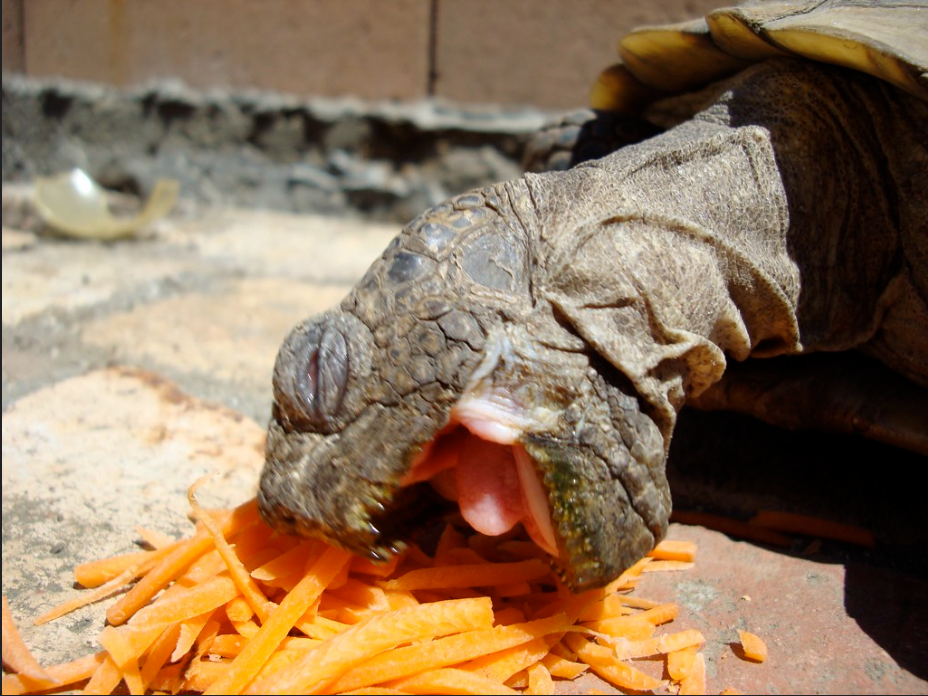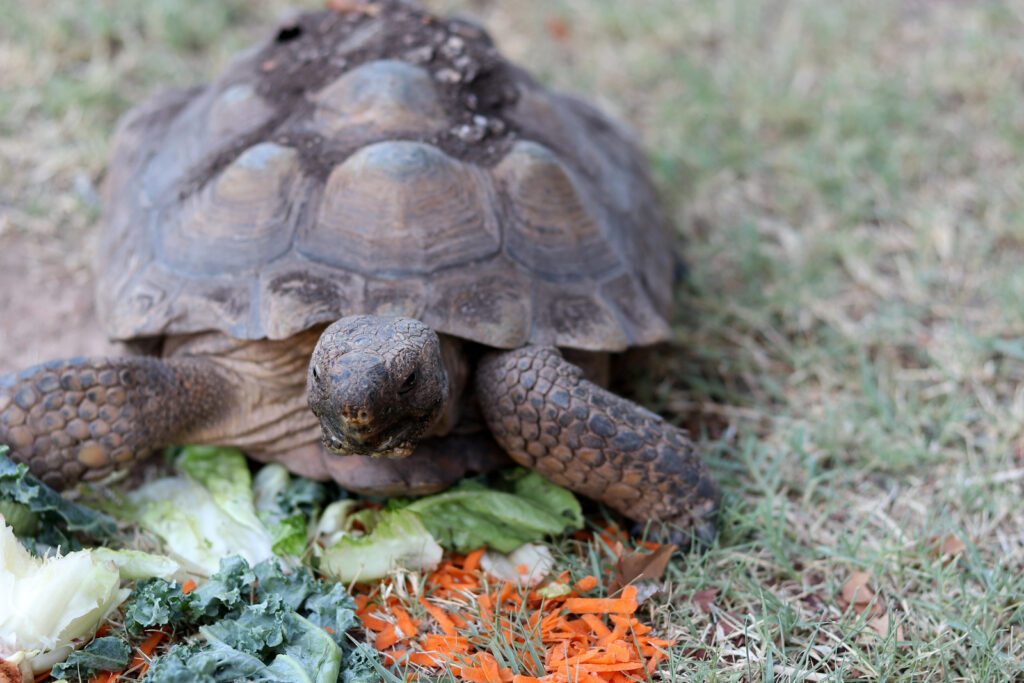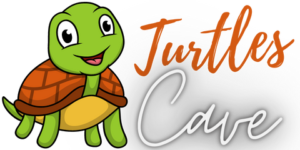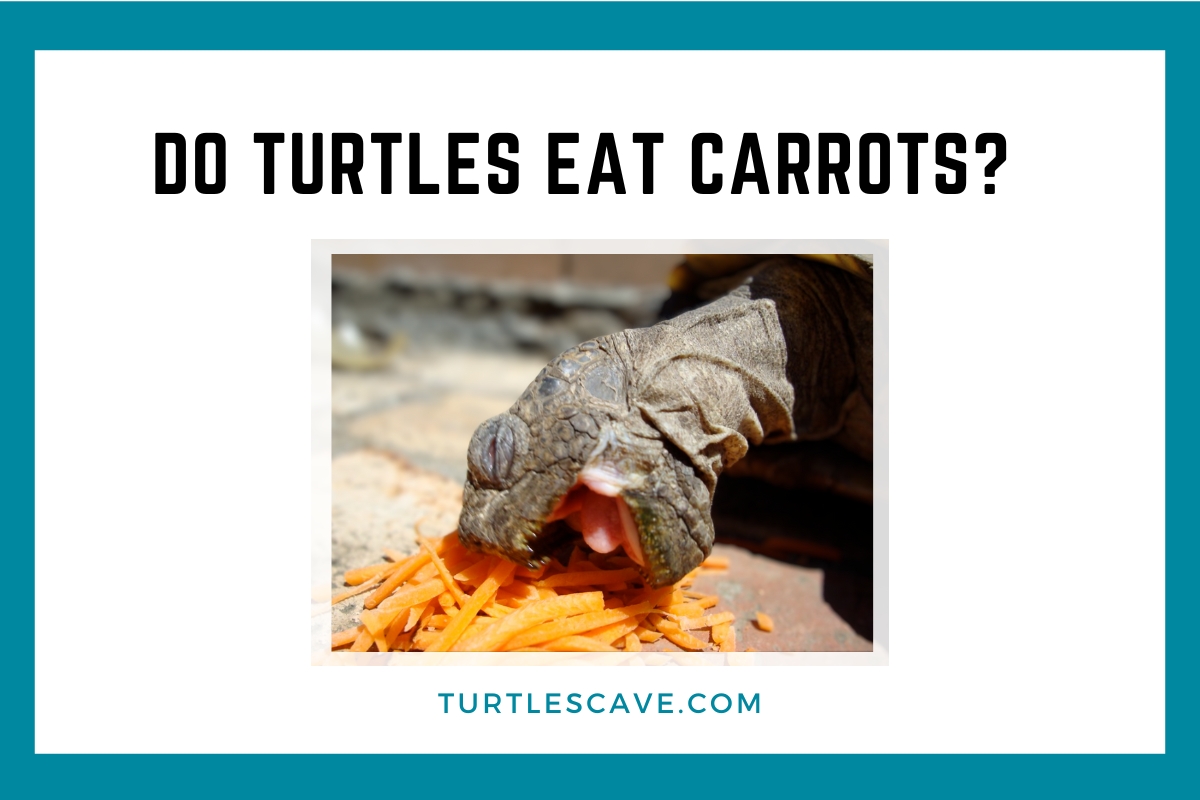Yes, turtles can eat carrots, but they do not form a significant part of their natural diet. Turtles are one of the most fascinating creatures that have been known to coexist with humans for a very long time.
They are fascinating creatures to watch, and we are always intrigued by their feeding habits. Have you ever wondered whether turtles eat carrots? This may sound like a weird question, but it’s a common one. It’s normal to be curious about the types of food different animals eat.
In this article, we’ll be discussing whether turtles eat carrots and what their diet generally looks like. We’ll also explore other intriguing aspects of their relationship with food. So, let’s dive in!

Credit: Eiko Komiya
The Basics Of Turtle Feeding Habits
Turtles come in different shapes and sizes, and they have different feeding habits. Whether you are taking care of a pet turtle or just curious about their eating habits in the wild, it is important to understand their dietary requirements.
In this post, we will explore the basics of turtle feeding habits, including the difference between omnivorous and herbivorous turtles, what they eat in the wild, how they choose their food, and if they need carrots in their diet.
Omnivorous Vs Herbivorous Turtles
Turtles can either be omnivorous or herbivorous. Omnivorous turtles have a diet consisting of both plants and animals, while herbivorous turtles only eat plants. Here are some examples of turtles with omnivorous and herbivorous diets:
- Common snapping turtles: Omnivorous turtles that eat fish, insects, plants, and even other turtles.
- Red-eared sliders: Omnivorous turtles that feed on insects, fish, fruits, plants, and vegetables.
- Desert tortoises: Herbivorous turtles that eat grasses, weeds, and cacti.
- African spurred tortoises: Herbivorous turtles that consume a variety of grasses, fruits, and vegetables.
What Do Turtles Eat In The Wild?
The diet of turtles in the wild largely depends on their habitat and species. Here are some examples of foods that different turtles eat in their natural habitats:
- Sea turtles: Primarily eat seaweed, sea grasses, and jellyfish.
- Freshwater turtles: Eat different types of aquatic plants, insects, snails, and fish.
- Box turtles: Consume insects, snails, slugs, earthworms, fruits, and vegetables.
- Tortoises: Graze on grasses, weeds, and shrubs.
How Turtles Choose Their Food
Turtles have different methods for choosing their food. Herbivorous turtles, for example, are known to distinguish between different types of grasses. Turtles also choose their food based on their nutritional requirements and availability. They use their sense of smell and sight to determine if their food is suitable for consumption.
Do Turtles Need Carrots In Their Diet?
Carrots are a great source of nutrients, but do turtles need them in their diet? While it is possible to feed your pet turtle carrots, they are not a necessary part of their diet. Turtles require a balanced diet that consists of a variety of foods based on their species.
For example, the diet of a red-eared slider should include pellets, vegetables, fruits, and protein. However, feeding your turtle a diet that consists solely of carrots can lead to nutritional deficiencies.
Understanding the feeding habits of turtles is crucial when it comes to keeping them healthy. Whether you are taking care of a pet turtle or just have an interest in turtles, it is important to know the difference between omnivorous and herbivorous turtles, what they eat in the wild, how they choose their food, and whether they need carrots in their diet.
Understanding Turtle Nutrition
Do Turtles Eat Carrots? Understanding Turtle Nutrition

credit: Wmpe2000
Turtles are fascinating creatures that make great pets. As with any pet, understanding their dietary requirements is essential for their overall health and wellbeing. In this blog post, we’ll focus on turtle nutrition, with a particular emphasis on carrots.
Nutritional Requirements For Turtles
Turtles’ nutritional needs vary depending on their species, age, and health status. A proper diet must include a balance of vegetables, fruits, and protein. Some of the essential nutrients that turtles require are:
- Calcium: Important for healthy bones, shell formation, and muscle function.
- Protein: Helps with growth and maintenance of muscle tissue.
- Vitamin a: Essential for a healthy immune system and vision.
- Fiber: Promotes healthy digestion.
Carrots Vs Other Nutritious Foods For Turtles
Carrots are undoubtedly a nutritious food and an excellent source of vitamin a, fiber, and antioxidants. However, turtles don’t require carrots specifically in their diet. There are other foods that provide the same nutrients and vitamins, including:
- Dark leafy greens (e.g., kale, collards, spinach)
- Squash
- Bell peppers
- Blueberries
It’s essential to offer your turtle a variety of healthy foods to ensure they receive a balanced diet.
Balancing A Turtle’S Diet
Keeping a turtle’s diet balanced is crucial for their overall health. Feeding turtles the same food every day is not ideal, as they require a range of nutrients to stay healthy. Here are some tips for balancing your turtle’s diet:
- Feed them a mix of vegetables, fruits, and protein.
- Offer your turtle a different selection of vegetables and fruits throughout the week.
- Always clean any excess food remaining in the tank.
The Effect Of Carrots On A Turtle’S Health
While carrots are an excellent food source for a turtle due to their rich vitamin a content, excessive consumption of carrots can lead to several health problems.
- Carrots are high in sugar and can cause obesity and diabetes if fed in large quantities.
- Overfeeding carrots can cause vitamin a toxicity, leading to bone and shell deformation.
That being said, if offered in moderation as part of a balanced diet, carrots are a healthy food choice for turtles.
Now that we’ve answered the question ‘do turtles eat carrots? ‘ And learned about turtle nutrition, we can conclude that carrots are a great addition to a turtle’s diet. However, there are other nutritious food options to consider to ensure a balanced diet.
Always remember to offer food in moderation and clean the tank to keep your turtle healthy and happy.
Debunking Myths About Turtles And Carrots
Do Turtles Eat Carrots: Debunking Myths About Turtles And Carrots
Turtles have been around for over 200 million years and have adapted to a wide range of environments. Over the years, many myths have emerged regarding turtles’ diet, including whether or not they eat carrots. We will debunk common myths and provide factual information about turtles’ diet.
The Origins Of The Turtle And Carrot Myth
The myth that turtles eat carrots started with pop culture references, especially cartoons where turtles are often depicted eating carrots. Many pet owners also feed carrots to their pets, including turtles. However, turtles do not naturally consume carrots in the wild.
Turtles are omnivores and can eat a variety of things such as insects, plants, and small animals, depending on their species.
The Truth About Carrots And Vitamin A
Carrots are known for their high content of vitamin a, an essential nutrient for eye health, growth, and development. While carrots may be a good source of vitamin a for humans, turtles’ dietary requirements differ. Turtles require more vitamin d3 than vitamin a.
Therefore, feeding carrots to turtles may not provide the necessary nutrients they need. Moreover, consuming too much vitamin a could lead to hypervitaminosis a, which is harmful to turtles’ health.
Can Too Many Carrots Harm A Turtle’S Health?
It is important to note that turtles can become ill from consuming too many carrots. As mentioned earlier, carrots are not a natural part of a turtle’s diet, and overfeeding them can lead to severe health consequences. Excessive consumption of carrots can cause diarrhea, vitamin a toxicity, and other health issues.
Turtles should receive a balanced diet of vegetables, fruits, and protein sources such as insects, fish or meat.
Factors That Impact A Turtle’S Diet
Several factors affect turtles’ diets, including their species, age, health, and natural habitat. As omnivores, turtles require a balanced diet that contains an appropriate balance of protein, carbohydrates, fats, vitamins, and minerals. Few species of turtles can only feed on plants, and these species require a diet with a higher vegetable content.
It is advisable to research a turtle’s dietary needs to provide the right nutrition for their health and growth.
While turtles may eat carrots as a part of their diet occasionally, it is not a natural food for them. With this article, we hope to have answered the question, “do turtles eat carrots? “, while providing factual information and debunking common myths surrounding turtles’ diets.
By following a balanced diet that meets their nutritional requirements, turtles can live a long and healthy life.
Best Practices For Feeding Your Turtle
Feeding turtles can be quite challenging, especially if you’re unsure of what to feed them. One common question that pops up is “do turtles eat carrots? ” The answer is yes, turtles can eat carrots, but they shouldn’t be the only item on their plate.
Here are some best practices for feeding and caring for your turtle:
Providing A Balanced Diet For Your Turtle
- Turtles are omnivores, which means they require a balanced diet of both plant and animal-based foods.
- Offer them a variety of food options, such as commercial turtle food pellets, dark leafy greens, and small pieces of meat or fish.
- Some turtles, like box turtles, may also enjoy fruits as a treat, so go ahead and offer them some strawberries or blueberries on occasion.
Food Presentation For Turtles
- Turtles are attracted to food that moves, so place pellets or pieces of food in a shallow dish with water. This will help them locate their food.
- It’s best to avoid feeding your turtle food off of your hand, as they may accidentally bite you while trying to grab food.
Frequency Of Feeding Turtles
- The frequency of feeding your turtle will depend on its age and species, but most adult turtles only require feeding once every other day.
- Young turtles may require feeding every day to every other day and should be fed smaller amounts.
How To Monitor Your Turtle’S Health
- Always monitor your turtle’s activity level and eating habits. If you notice that it’s not as active or not eating as much, it may be a sign of health problems.
- Keep the water in your turtle tank clean, as dirty water can lead to illness.
- If you’re ever unsure about your turtle’s health, it’s best to consult a veterinarian who specializes in reptiles.
Feeding your turtle a balanced diet with a mix of plant and animal-based foods is essential to their overall health and well-being. Use these best practices to ensure that your turtle is getting the nutrients it needs to thrive.
Frequently Asked Questions For Do Turtles Eat Carrots
Do Turtles Eat Carrots Every Day?
Turtles do not eat carrots every day, nor are they a regular part of their diet. Carrots are high in sugar, which can lead to health problems for turtles if consumed in large amounts. Turtles should stick to a diet of primarily vegetables, protein, and some fruits.
Are Carrots Good For Turtles?
Carrots are not the best food for turtles, but they can be a healthy treat in moderation. Turtles require a balanced diet that includes leafy greens, veggies, and protein. Too many carrots can cause vitamin a toxicity, which can lead to serious health issues.
What Vegetables Do Turtles Eat?
Turtles enjoy a variety of vegetables such as kale, collard greens, dandelion greens, mustard greens, and turnip greens. Other vegetables that are good for turtles are carrots, squash, bell peppers, and green beans. It’s essential to provide a balanced diet with the right ratio of veggies and protein.
Conclusion
After conducting thorough research on the subject, we can conclude that turtles do indeed eat carrots, along with a variety of other fruits and vegetables. While turtles are primarily known for their herbivorous diet, some species may occasionally consume small animals as well.
Recent Posts
Hermann tortoises can eat watermelon, but only in moderation. This fruit should not be a staple in their diet due to its high sugar content. Hermann tortoises are fascinating creatures that...
Turtles headbutt black things due to their instinctual response to threats or territorial disputes. When turtles encounter black objects, they may perceive them as intruders or competitors, leading...

